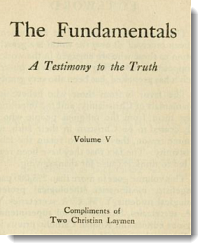The Certainty and Importance of the Bodily Resurrection of Jesus Christ from the Dead
CHAPTER III THE CERTAINTY AND IMPORTANCE OF THE BODILY RESURRECTION OF JESUS CHRIST FROM THE DEAD
BY REV. R. A. TORREY, D. D.
(Copyrighted by R. A. Torrey in Great Britain and America and published herewith by permission. {sic}
The resurrection of Jesus Christ from the dead is the corner-stone of Christian doctrine. It is mentioned directly one hundred and four or more times in the New Testament. It was the most prominent and cardinal point in the apostolic testimony. When the apostolic company, after the apostasy of Judas Iscariot, felt it necessary to complete their number again by the addition of one to take the place of Judas Iscariot, it was in order that he might “be a witness with us of His resurrection” (Acts 1:21, 22). The resurrection of Jesus Christ was the one point that Peter emphasized in his great sermon on the Day of Pentecost. His whole sermon centered in that fact. Its key-note was, “This Jesus hath God raised up, whereof we all are witnesses” (Acts 2:32, cf. vs. 24-31). When the Apostles were filled again with the Holy Spirit some days later, the one central result was that “with great power gave the Apostles witness of the resurrection of the Lord Jesus.” The central doctrine that the Apostle Paul preached to the Epicurean and Stoic philosophers on Mars Hill was Jesus and the resurrection. (Acts 17:18, cf. Acts 23:6; 1 Cor. 15:15.) The resurrection of Jesus Christ is one of the two fundamental truths of the Gospel, the other being His atoning death. Paul says in 1 Cor. 15:1. 3, 4, “Moreover, brethren, I declare unto you the Gospel which I preached unto you, which also ye have received, and wherein ye stand; For I
 (
(
Discussion